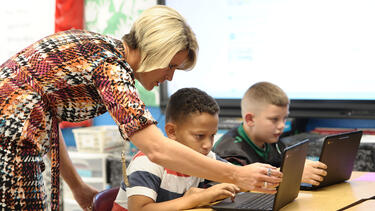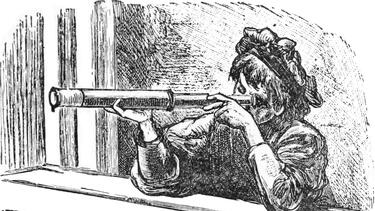All Insights Articles
The End of Noncompete Agreements May Be Near
Earlier this month, the Federal Trade Commission unveiled a proposal that would block companies from limiting their employees’ ability to work for a rival through noncompete agreements. We asked Yale SOM’s Fiona Scott Morton about the ban’s potential impact on wages, innovation, and the economy as a whole.

Activist Investor Nelson Peltz’s Track Record Doesn’t Back Up His Bluster
Peltz, the founding partner of Trian Fund Management, is demanding a seat on Disney’s board. Yale SOM’s Jeffrey Sonnenfeld and Steven Tian found that more than half of the companies with Peltz on their boards have underperformed the market.

The Social Entrepreneur’s Tool Kit for Making a Difference
All of us see things we’d change about the world. In a new book, Yale SOM’s Teresa Chahine offers a set of tools for anyone seeking to make a positive impact.

Black Households Have Less Access to Banks
Why do some demographic groups visit banks less than others? According to a new study by Yale SOM’s Alexander Zentefis and the Fed’s Jung Sakong, the primary barrier for Black households is a lack of nearby branches.

The U.S. Has Thwarted Putin’s Energy Blackmail
Yale SOM’s Jeffrey Sonnenfeld and Steven Tian write that the Biden administration’s balanced approach has helped Europe maintain its natural gas supply while protecting U.S. interests.

Black Boys Face Double Jeopardy at School
Teachers tend to blame Black boys more than White boys for identical misbehaviors, finds Yale SOM’s Jayanti Owens. Black and Latino boys also receive harsher punishment because the schools they attend tend to have more punitive cultures.

Taking a Disciplined Look at Irrational Investors
Prof. Nicholas Barberis applies a scientific eye to the irrational ways we form beliefs and how those beliefs collectively drive financial markets.

Smarter Ways to Look Ahead: Research-Based Suggestions for a Better 2023
We asked faculty from the Yale School of Management to put a scholarly lens on improving our personal and professional lives in the coming year.

The CEOs Who Succeeded and Stumbled in 2022
Yale SOM’s Jeffrey Sonnenfeld and Stevan Tian name five corporate leaders whose accomplishments stood out this year—and five who led their enterprises into rough waters.

A Long-Term Solution to Insuring the Sick
In a new paper, Yale SOM’s Soheil Ghili and his co-authors show that longer health insurance contracts could protect consumers who are or become ill against sudden premium spikes.
